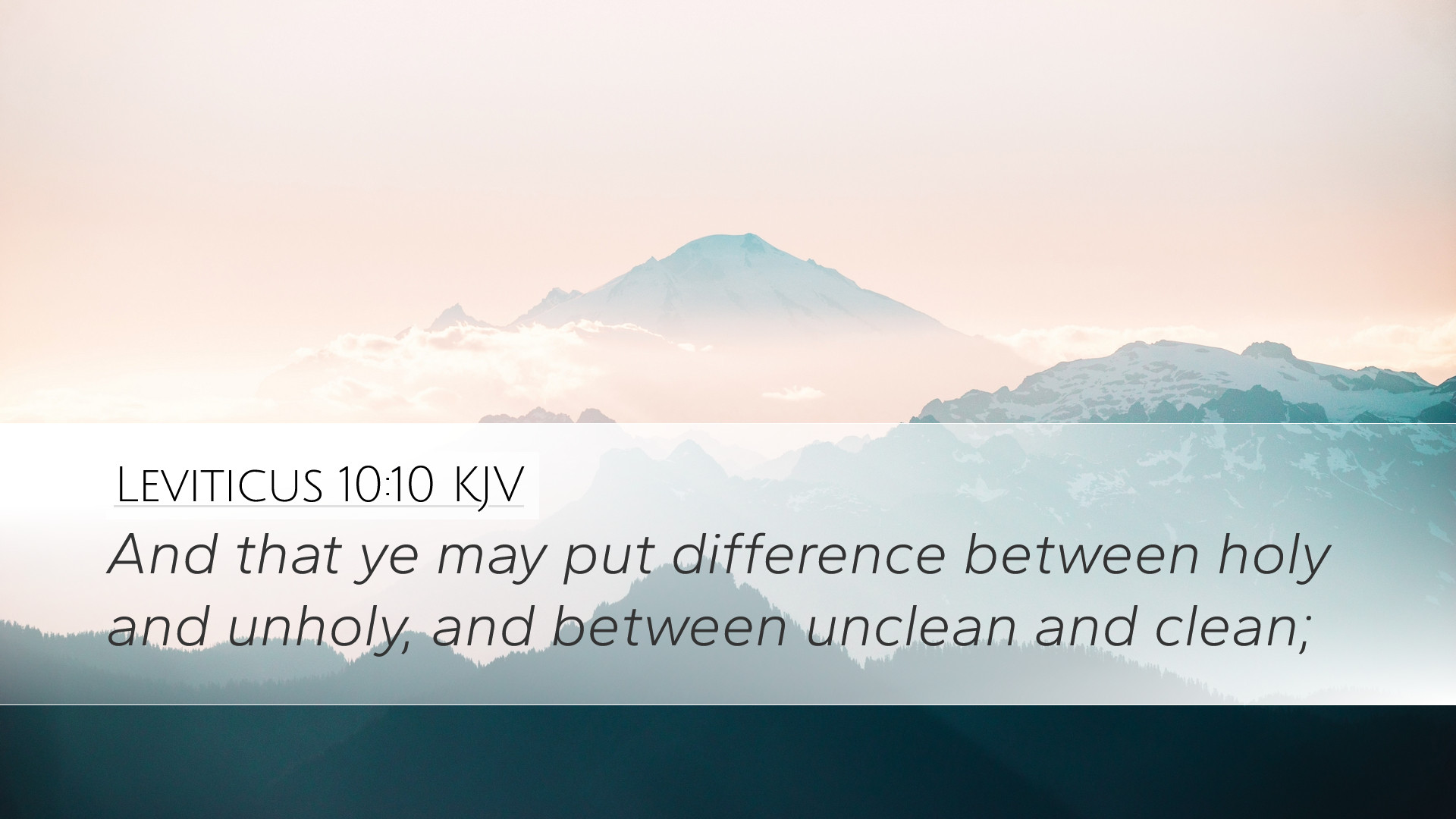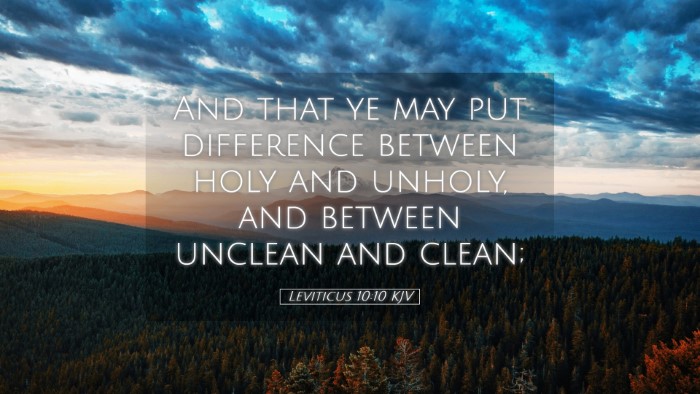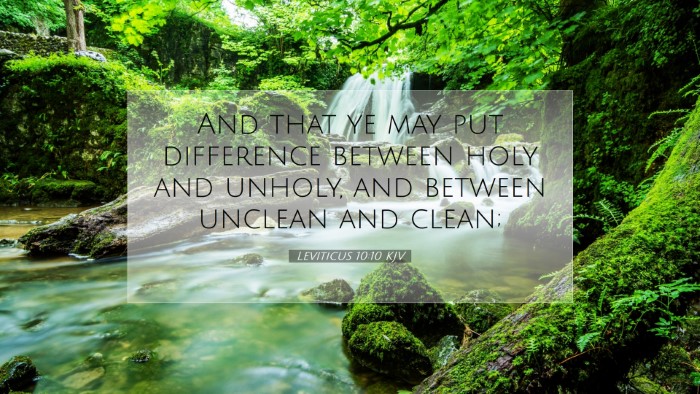Bible Commentary on Leviticus 10:10
Verse Analysis: Leviticus 10:10 states, “And that ye may put difference between holy and unholy, and between unclean and clean.” This verse, situated within the context of the priesthood's responsibilities, emphasizes the distinguishing of sacred from secular, pure from impure. This duty was fundamental to the Israelite community's understanding of God's holiness.
Contextual Background
The surrounding chapters in Leviticus provide a foundational understanding of the priestly system and the sacrificial laws. Leviticus 10 follows the tragic incident of Nadab and Abihu, sons of Aaron, who offered unauthorized fire before the Lord and were consumed by divine fire as a consequence of their actions. This immediately highlights the seriousness of approaching God with reverence and understanding.
Purpose of Holy Distinctions
The command to distinguish between the holy and the unholy is essential for several reasons:
- Preservation of Holiness: Understanding the difference helps maintain the sanctity of worship and the actions associated with it. The priests, as mediators, were tasked with ensuring that the people comprehended the nature of God's holiness.
- Encouragement of Obedience: By delineating the clean from the unclean, Israel was constantly reminded of their covenant relationship with the Lord and the expectations that came with it.
- Social Implications: The distinctions instructed in this verse extend beyond mere ritual; they influence communal life and ethics among the Israelites.
Commentary Insights
Matthew Henry's Perspective
Matthew Henry underscores the gravity of the priestly office. He explains that the priests' ability to discern between what is sacred and profane is not just ritualistic but reflects an understanding of God’s nature and requirements. Their unworthiness, as demonstrated by Nadab and Abihu, serves as a warning against irreverence and disrespect toward divine authority.
Henry also notes that such distinctions are essential for personal and corporate piety. Knowing what is unclean or holy fosters a deeper relationship with God, facilitating worship in spirit and truth.
Albert Barnes’ Commentary
Albert Barnes elaborates on the concept of 'clean' and 'unclean'. He explains that this distinction is not merely a matter of ritual purity but engages with moral implications as well. The Israelites were called to reflect God’s holiness in their daily lives. Failure to recognize this can lead to sin and disarray within the community.
Barnes suggests that this differentiation promotes a lifestyle of holiness. It reminds believers that their lives should reflect the attributes of God—holiness, justice, and purity. The failure to engage in this discernment could corrupt the community and dilute its witness.
Adam Clarke’s Interpretation
Adam Clarke addresses the nuances of 'holiness' as it pertains to both ritual practice and moral behavior. He argues that an understanding of holiness requires continuous engagement with God's Word and His statutes. Clarke emphasizes the necessity for leaders to model this discernment for the laity, serving as examples of living out the sacred standards articulated in the Law.
Clarke also highlights that the passage serves as a guide for interpreting God's laws and precepts, reinforcing the idea that holiness touches all areas of life—spiritual, societal, and personal.
Theological Exegesis
The theological implications drawn from Leviticus 10:10 bridge both the Old and New Testaments. The notion of holiness is further developed in the New Testament, where believers are called to be holy as God is holy (1 Peter 1:16). The priesthood of all believers established in the New Covenant echoes the need for discernment in living out a life that reflects God's character.
Practical Application for Modern Believers
Understanding and applying the principles from Leviticus 10:10 can lead to a deeper spiritual life:
- Personal Reflection: Believers are encouraged to evaluate their lives against God’s standards of holiness, discerning areas that may be considered 'unclean'.
- Corporate Worship: The church as a body should pursue collective holiness, understanding its implications on worship and community life.
- Teaching and Discipleship: Pastors and leaders should prioritize teaching discernment regarding holy living in their congregations.
- Evangelism: Being a distinguishing factor in the world serves as an invitation for others to encounter the God of holiness through His people.
Conclusion
Leviticus 10:10 serves as a crucial reminder of God’s call to holiness and the integral role that discernment plays in the life of both individual believers and the faith community. The insights drawn from historical commentaries affirm the timeless relevance of this passage, as it directs all who endeavor to serve God toward a greater understanding of His holiness and their calling to reflect it in all they do.


